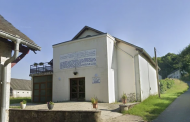Beijing and the Hong Kong government are using the pandemic as a “golden opportunity” to crack down on dissent and the growing pro-democracy movement, according to a senior protest leader arrested over the weekend.
The arrest of Lee Cheuk Yan, a veteran politician and activist, and 14 other high-profile people on Saturday, came amid a run of acts by authorities seen as alarming intrusions on Hong Kong’s autonomy, ahead of elections in September.
Lee told the Guardian the arrests – which were condemned by the UK, US and Australian governments and human rights groups – would have seen people “pouring out onto the street to protest” in normal times.
“But… Hong Kong people are very alert to the concern of infection, so they are using the chance of the pandemic,” he said. “This is a golden opportunity for them.”
He said Saturday’s arrests were aimed at ensuring pro-Beijing candidates won a majority at September’s Legislative Council elections, and could push through “more stringent or draconian laws for the future”.
He said candidates couldn’t run if they had been sentenced to a jail term of more than three months. “Anyone who wants to run in the election, you better be careful. I think that’s the message,” he said.
Also rounded up were 81-year-old barrister and internationally recognised democratic leader, Martin Lee QC, and media tycoon Jimmy Lai, on charges relating to three unauthorised protests in Hong Kong. It was the second time Lee Cheuk Yan and Lai have been detained by Hong Kong police this year.
The Hong Kong government defended the arrests, saying they were in strict accordance with the law. “Cases will not be handled any differently owing to the political beliefs or background of the persons involved,” it said.
However, Lee decried the arrests as an act of “revenge and retaliation” against pro-democracy activists, as part of a plan by China’s Communist party to silence dissent.
The arrests related to the alleged organising of and participation in unauthorised protests, including three held on 18 August, 1 October and 20 October last year. The 18 August protest was permitted inside a park, but spilled out to the streets when 1.7 million people showed up, and remained peaceful.
“If we are found to be guilty of the [participation] charges, then 1.7 million people should be guilty of participation in an unauthorised assembly,” said Lee. “But that’s absurd … Are you going to prosecute 1.7 million people?”
Lee said he and others also faced further charges for announcing a protest before receiving approval from police.
More than 7,000 people, most of the young, have been arrested in relation to the frequent and occasionally violent anti-government protests held since June.
Shortly after his release on Saturday, Martin Lee said he was “proud and relieved to be listed as a defendant, after seeing so many brilliant young people arrested”.
Speaking to the Guardian before he was arrested, Martin Lee said Beijing was “resorting to all kinds of tricks” to stifle potential pro-democracy candidates, out of a reasonable fear that they might win power.
Pro-Beijing legislator and former secretary of security Regina Ip told the Guardian the arrests shouldn’t be viewed “purely through a political lens” and that no one was above the law.
Ip said the protests were expected to “return with a vengeance” once the pandemic subsided, and that Hong Kong would never regain its stature if order wasn’t restored.
“Thus it is imperative for the government to strictly enforce the law to restore order, irrespective of the threat of sanctions and criticisms by foreign governments,” she said.
Saturday’s arrests came after a number of events interpreted as overreaching intrusions by Beijing into Hong Kong’s semi-autonomy, guaranteed under a 50-year agreement made when Britain handed the territory over to China in 1997.
Under that agreement Hong Kong’s mini constitution, the Basic Law, declares that no department under the Chinese central and local governments “may interfere in the affairs which the Hong Kong special administrative region administers on its own”.
However on Friday China’s top bodies in the region, the Hong Kong and Macau Affairs Office (HKMAO), which had been criticised for weighing into a Hong Kong legislative dispute, claimed it was not bound by that law, and that Hong Kong’s right to self-rule was “authorised by the central government”.
Attempting to get on top of the issue, Hong Kong’s government then released a series of contradicting statements.
It also followed a speech earlier in the week by the head of China’s liaison office in Hong Kong, Luo Huining, calling for long-shelved national security legislation to be introduced as soon as possible to safeguard against threats to national security, like the protests.
Luo was supported in his call by pro-Beijing legislators and the chief executive Carrie Lam, however Ip told the Guardian that while the laws were needed, now was not the right time, because the government was “consumed with the fight against Covid-19”.







































admin in: How the Muslim Brotherhood betrayed Saudi Arabia?
Great article with insight ...
https://www.viagrapascherfr.com/achat-sildenafil-pfizer-tarif/ in: Cross-region cooperation between anti-terrorism agencies needed
Hello there, just became aware of your blog through Google, and found ...